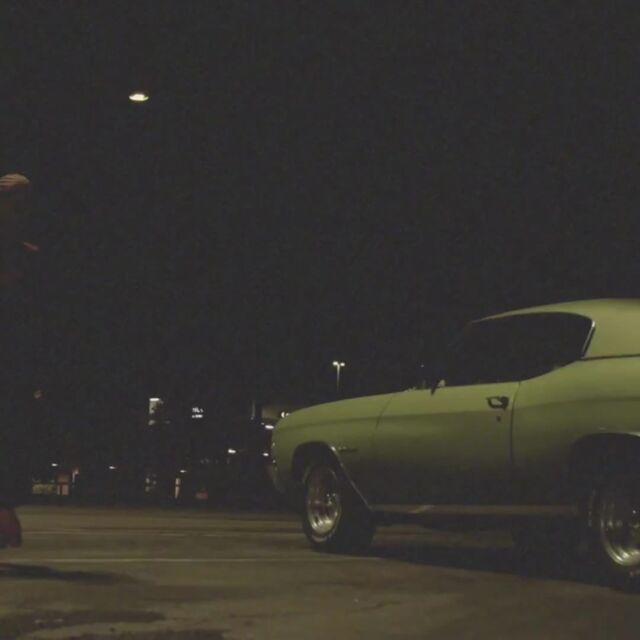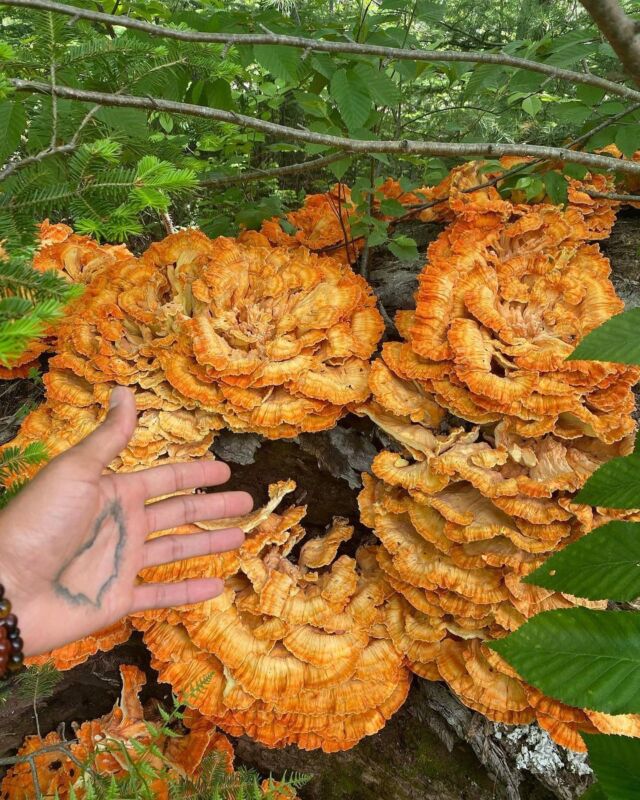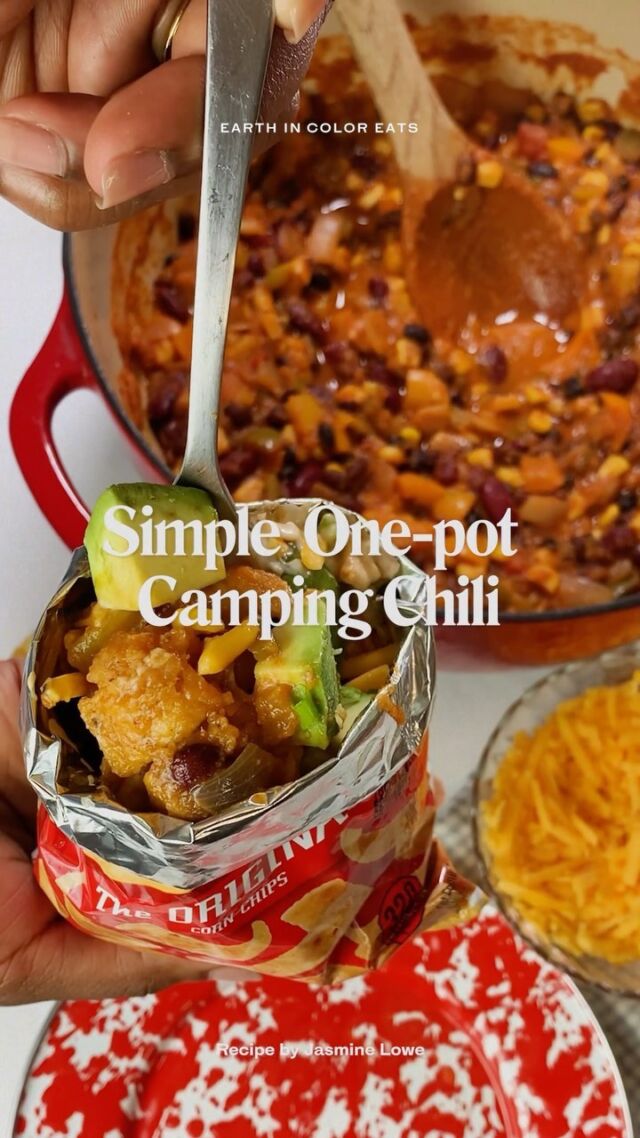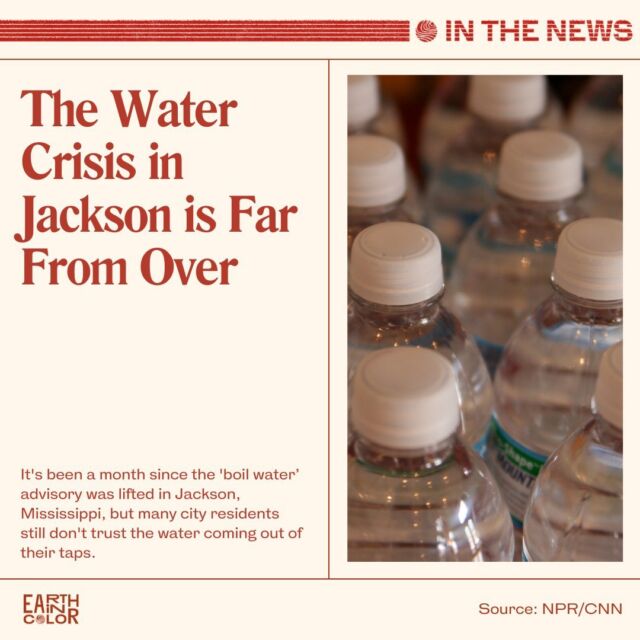The Community Spotlight series highlights Black individuals and entities who are creating healthy, sustainable, and just futures. In this story, we feature Nicole Snell, CEO of Girls Fight Back, Founder of Outdoor Defense, and hike leader for Black Girls Trekkin. She is also a Lead Instructor for both IMPACT Personal Safety and IMPACT Global. As an NACP credentialed victim advocate with 10 years of experience in violence prevention, gender-based violence prevention, and sexual assault prevention, Nicole is passionate about helping give people the tools they need to feel powerful. Nicole shares her journey to finding safety in the outdoors, her experience as an avid solo traveler, hiker, and public speaker and how she uses her skills to empower others to not only protect themselves, but to find joy in outdoor adventures both alone and in community.
finding safety in nature
I’ve always been an outdoors person. I grew up in the deserts of Southern California, and some of my earliest memories are of me playing outside in the dirt, catching lizards, collecting rocks—being a kid. I’d watch sunrises and sunsets turn the mountains purple. I’ve always had a connection to nature. And for me, being outside has always felt safest. Because of things that happened in my past, being outside gave me that feeling of sanctuary, freedom, and independence. Being outside gave me the ability to experience the world, notice the small things, and walk in whichever direction I wanted to. It was like the tether was removed. The outdoors was a place where I could simply exist and have a moment to breathe. I still get that feeling when I am out in nature. It’s meditative for me. Some people can meditate by sitting still, but I need to be moving. My meditation comes from being active, from walking, from hiking, from being outside, from letting my mind wander. I get excited about nature and new things. For me that is what safety means: it is the freedom, the independence, and the joy that I can have when I’m experiencing the outdoors alone.
The outdoors was a place where I could simply exist and have a moment to breathe. I still get that feeling when I am out in nature.
I also love outdoor sports and outdoor activities. When I was growing up, there were very few people who looked like me doing any of those activities. People would tell me things like: “Oh, you’re a girl. Girls don’t do that” or “You’re Black, Black people don’t do that.” Sometimes they’d flatout tell me: “ You shouldn’t do that.” And I said to myself, “Well, yeah, I do these things and I enjoy them. So I guess Black people do!” When I became an adult, I was determined and my mindset was, “I’m going to do all the things, you cannot stop me!” I’ve been skydiving, scuba diving, white water rafting, hang gliding, snorkeling–basically anything with adrenaline or extreme sports. I’m grateful to have had so many adventures and new sports experiences in my life, and I’m not done yet! I really found my passion for hiking after I graduated college. I had a little bit more time to go into the mountains where I live near Griffith Park, and I explored new trails. Then hiking apps came out which popularized groups and meetups and that meant you could connect with other people to explore trails. But I’ve still always preferred to go by myself.
In 2016, I finally decided to take a trip to New Zealand. I’d been planning that trip my whole life; it was on my bucket list. There’s a famous hike there—a twelve mile hike called the Tongariro Alpine Crossing. That was the longest hike I had done at that point. To prepare, I had to upgrade a lot of my gear. I needed actual hiking boots, a backpack, waterproof gear, wool socks, and baselayers. After I did the hike, it blew my world open. I thought, “wow, I can hike longer which means I can see even cooler landscapes.” I started posting more about my hiking and adventures on social media, and that’s how I connected with Black Girls Trekkin’. I was invited by the co-founders to join the group and then to be a hike leader. I haven’t had as much time to lead hikes this year because I have been busy with my company, Girls Fight Back, which I bought in 2020. Right now, through Girls Fight Back, I am serving my community by teaching self-defense and offering safety strategies to help people feel empowered. I have also traveled to places like Fiji and Thailand to teach self-defense to other BIPOC communities so people can feel confident to live their lives freely anywhere in the world.
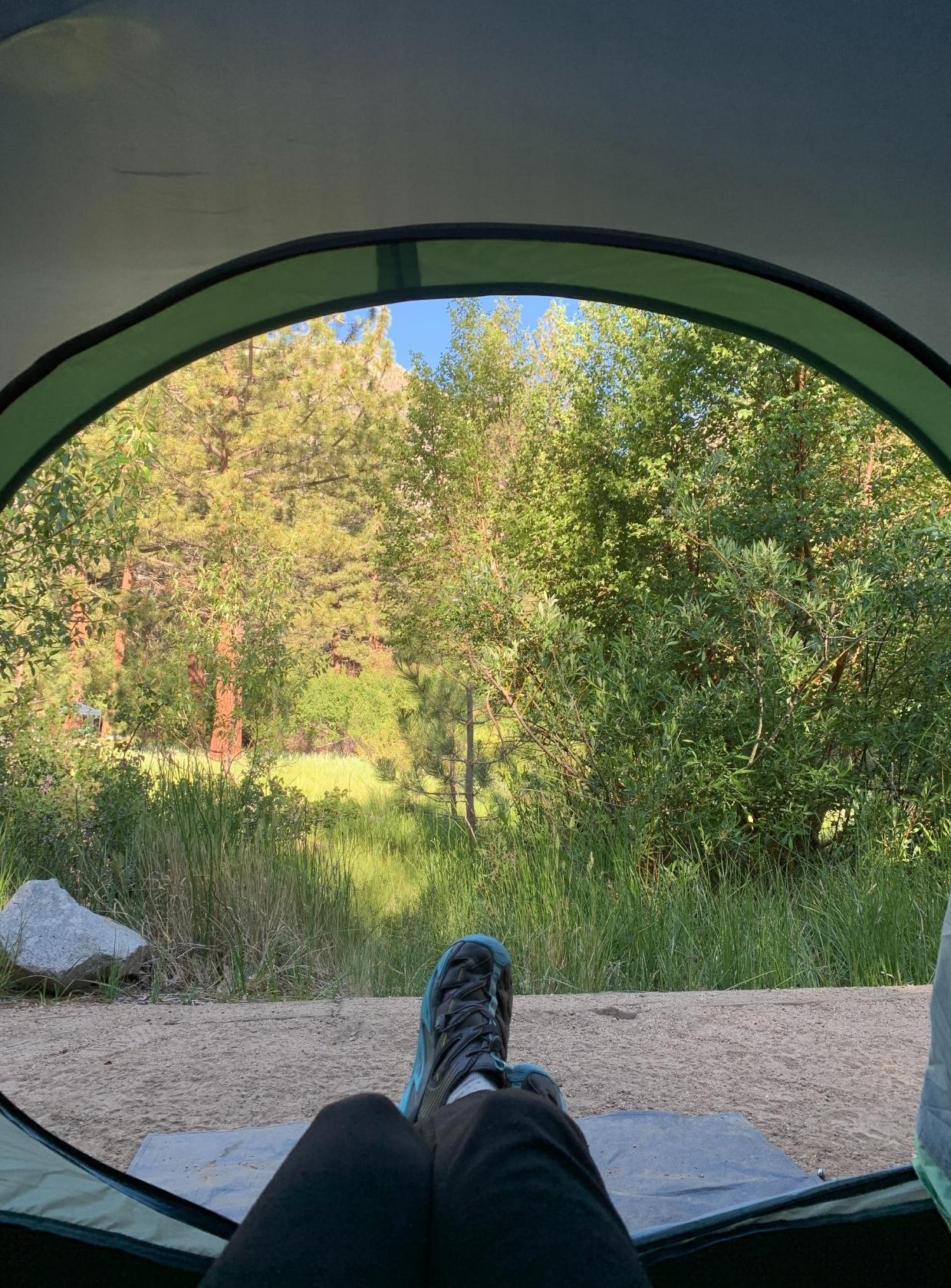
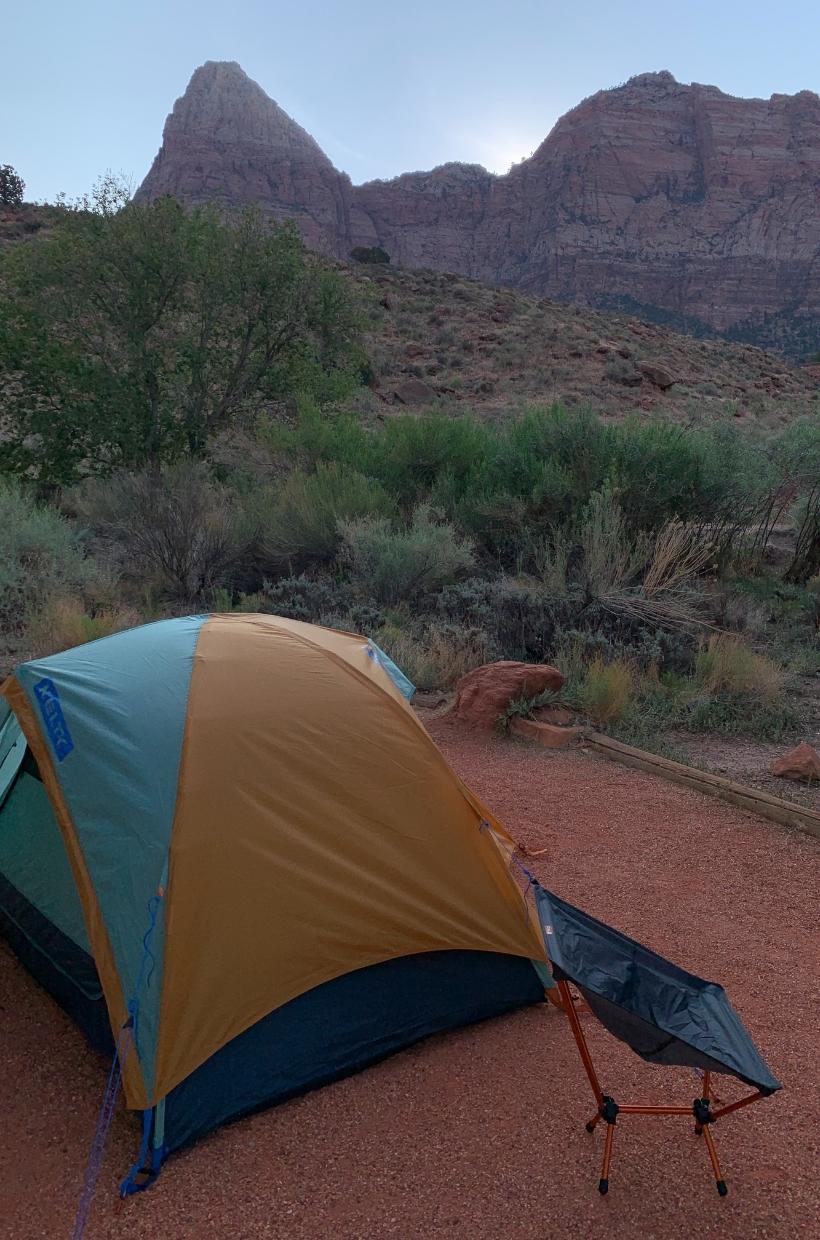
yes, black people do hike
I want to dispel the myths about Black people’s experiences in nature, because those stereotypes are wrong. If you want to do an activity or explore the outdoors, it doesn’t matter if you’re the only Black person in your family, the only Black person in your town, or in your neighborhood who is doing it. Wherever you are, if you want to take up a new hobby or try a new activity, you have every right to do so. If anyone tells you any different or tries to discourage you from branching out and pursuing your goals, that person is not for you. Other people’s limits don’t have to limit us.
However, if you don’t feel comfortable doing activities alone, there are groups and national organizations that you can connect with that provide a safe and positive experience. The existing stereotypes about Black people experiencing nature are rooted in racism and systemic inequality, that date back to our ancestors’ enslavement in this country and the subsequent laws that were passed which further limited our freedoms and the activities we could enjoy. Sometimes, it’s hard to break through what has been passed down to us in our own family histories.
With all of that said, I want to offer some encouragement. You don’t have to let anyone or anything stop you if there’s a goal you have in mind. If you want to try scuba diving, go scuba diving. If you want to snowboard, go snowboarding. If you want to learn how to ice fish, go ice fishing. Now that I am connected to so many people on social media, I see Black people doing many things that I never saw a single Black person doing when I was growing up. It was not because there weren’t Black people doing amazing things, but it was because we didn’t have the easy access that technology and social media provides to see them doing those activities. Now, I’m watching Black people breaking barriers, debunking stereotypes, taking up space, and showing the world that we not only belong in outdoors spaces, but we thrive here. I think it’s so wonderful, especially for the youth because they’re going to have role models. That’s really what I want to be for young Black women and young Black men as well. I want to be an example for others who may feel limited. I want to be the role model for them that I never had. I want them to look at my experiences and say “Yes, I can do this. She is doing it, and I can do it too.”
I want to dispel the myths about Black people in the outdoors, because those stereotypes are wrong.
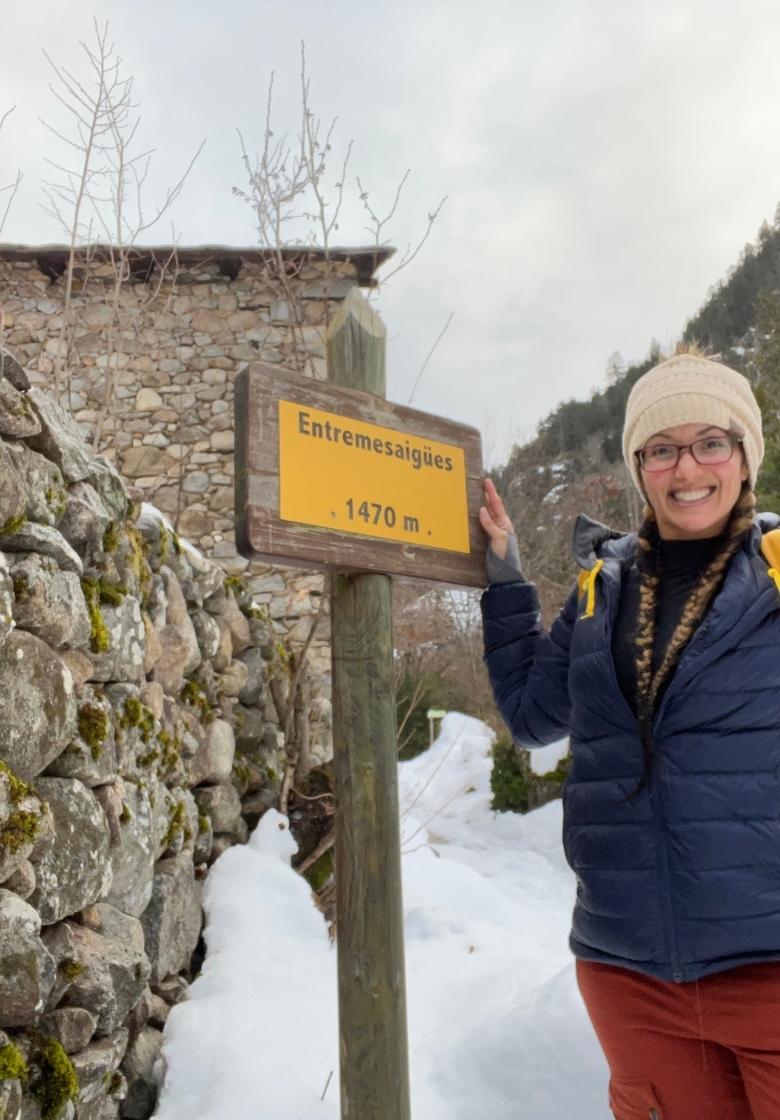
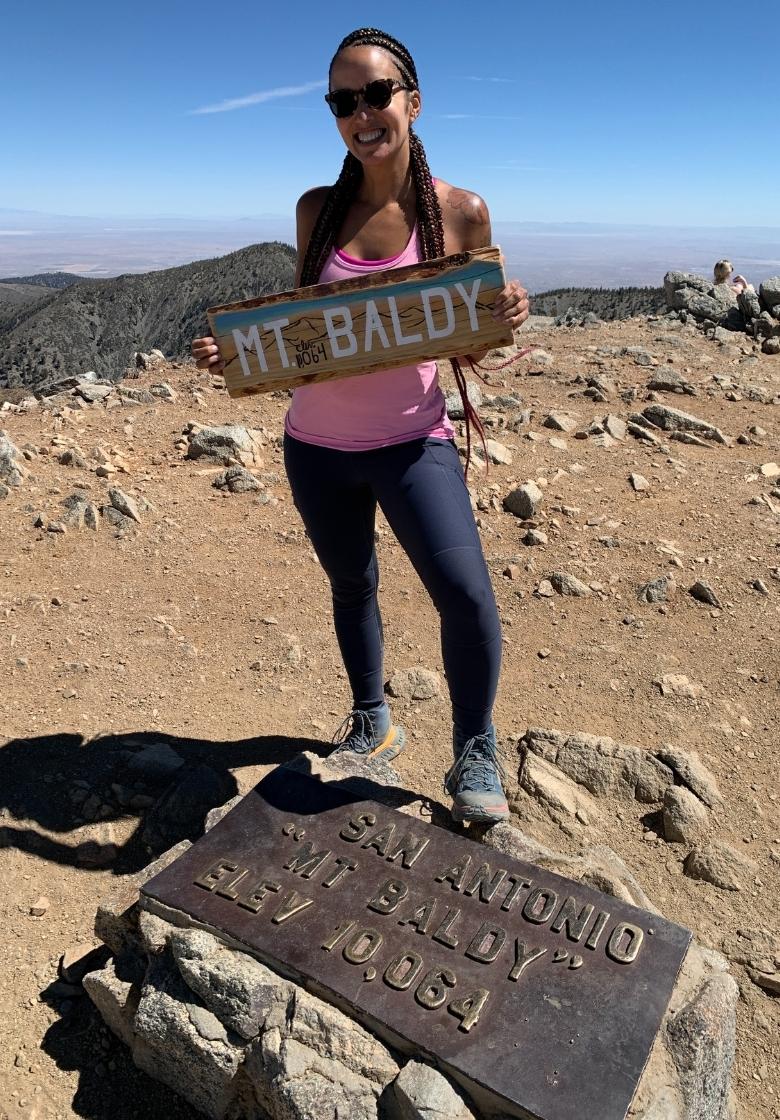
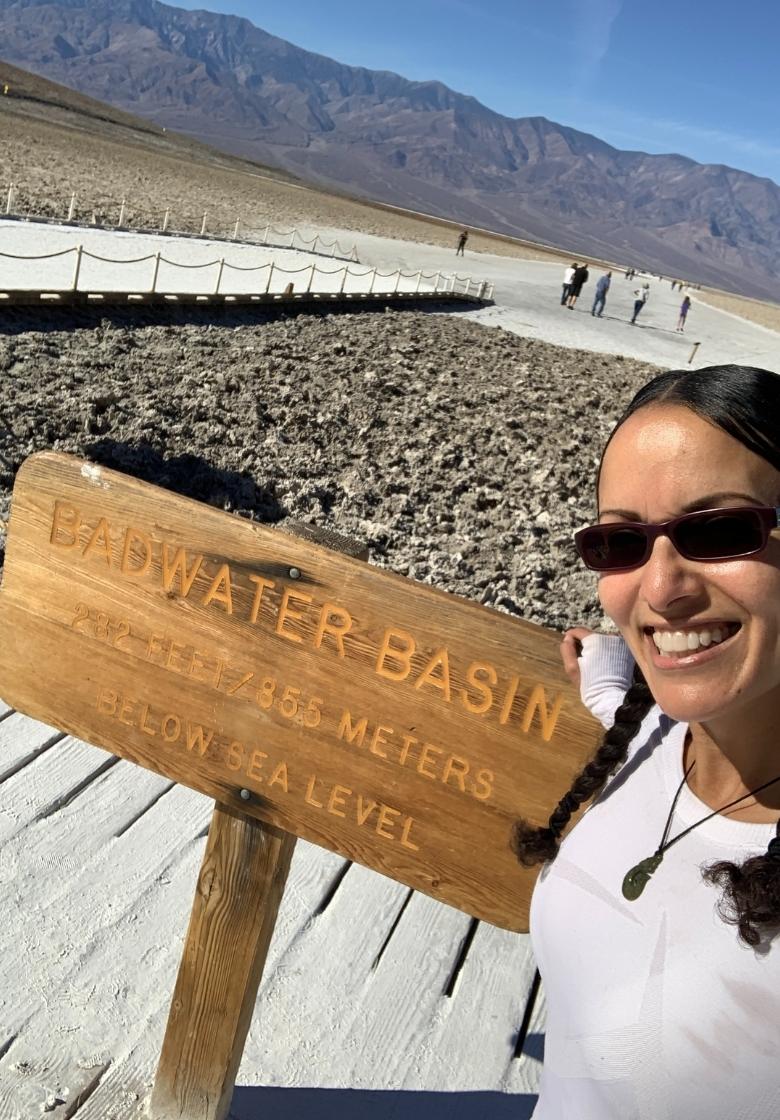
preparation is power
When I was preparing for the first long hike in New Zealand, I read all the information that I could find: trail reports, reviews from people and bloggers who had done it before, lists of gear I needed, and gear reviews. Preparation is power, but at some point you have to actually step into action and just do it. You can spend all your time prepping, and then never actually do the activity because you just get stuck in that loop of thinking there’s always more to learn. Of course, there is always more to learn, but that’s also part of the adventure. I don’t go on a trail expecting to know everything that’s gonna happen. I prepare to make sure that I’m going to be safe when I’m out there, but I never actually know what I’m going to see. That’s the adventure. I want to be surprised (but only with good surprises, not bad or unsafe ones). If everything went exactly as we planned, life would be really boring. So I embrace those little challenges that happen both on the trail and off.
During my four-day Inca Trail hike to Machu Picchu I felt like I wasn’t going to finish. Day one was hard and I was told day two would be even worse. I had been training as much as I could, but I hadn’t gone up to such a high elevation or been staying there for extended periods of time. I got to Cusco a couple of days in advance to acclimate enough to where I didn’t get altitude sickness, but my lungs were still not used to breathing the thin air. It can take weeks, sometimes months, to get used to that. My body was fit, but my lungs told me to take it really slow. The other people that I hiked with had been in the country and surrounding countries at that elevation for a longer period of time and they were just flying down the trail. I was last almost the entire way and that got in my head. On day two, we climbed to the highest point, Warmiwañusqa (Dead Woman’s Pass) which was 13,828 feet. I took my time and I felt like it took forever, but I made it. I looked around and everyone in the tour group had ended up at the same place. Now anytime something gets hard, I remind myself that I have conquered challenges in the past and overcome my fears. That means I can continue to do that in the future! When I take things one step at a time, I will get to my goal. That is all it takes!
we are our own best protectors
I want everyone to have the confidence to go and do the things they want to do. The self-defense and empowerment training that I teach is about life training; people receive survival skills for existing in the world. It’s surprising to most people, but the majority of safety training and self-protection training is not learning how to be physical, it’s learning non-physical aspects and verbal skills. Learning different strategies that help us feel more comfortable transitioning to going outdoors is what gives us confidence to handle situations that may arise. I have had a few negative experiences being outdoors as a Black woman, and I hear stories from others as well. However, there are strategies to deal with people who might aim microaggressions at us, say racist things, or be inappropriate or creepy. One helpful tool is knowledge. It’s important to know that those incidents are not our fault, and we have a litany of tools available to respond with that will help us stand in our power and continue participating in the things we love. I aim to help more Black people get outdoors and feel empowered to do what they want to do, whether it’s hiking, traveling, or walking their dog at night. If I can remove that barrier for them and those self-imposed or societal restrictions, then I feel like I’ve done my job.
People often feel like being in nature alone is somehow inherently dangerous. Statistically speaking, being in nature is no more dangerous than walking in your neighborhood. In fact, there is a lot of fear around stranger danger, but the majority of the time people experience violence from those they know. For women, 86 percent of the time, we are assaulted by someone we know. It is not a stranger on the trail. It’s not even a stranger on the street. It’s people in our own lives such as an intimate partner, a friend, a family member, or an acquaintance. So the idea that being outside alone is more dangerous is not necessarily the truth. That’s the first point I try to make whenever I’m doing a presentation. Not everyone we see out there means us harm. Not every stranger has bad intentions. I’ve had more negative encounters in public places and cities than I’ve ever had on the trails, and even if we run into someone who means us harm while on the trail, we are not helpless.
We are our own best protectors. We are with ourselves 24/7. Let’s own that power.
We are our own best protectors. We are with ourselves 24/7. Let’s own that power. Let’s own the fact that we’re the best person capable of making decisions about our safety. We’re the only ones that are the experts of being able to decide what’s best for us. Whatever we decide that gets us out of any situation safely is the right thing to do. People will sometimes come to me and share things that have happened to them and ask my opinion on what they should have done. My response is always, “Well, you’re here right now. Right? And you’re safe. You did the right thing.” I’m never going to second guess what anyone did in a past situation. No one should. Victim blaming is wrong and we should never second guess what someone did to protect themselves in a situation. Whatever someone did in the past to survive was right in that moment. Now, if someone asks me to offer suggestions in case the same thing happens in the future, I’m happy to offer other options and help them think through other available choices.
I feel it’s a great honor and responsibility as an instructor and as an advocate to be able to hold space for survivors. My goal is to offer everyone who attends my sessions with wisdom that will enable them to move forward in life with more confidence, more agency, and less anxiety. The information that I share is from years of research, experience, and education, but that doesn’t mean I’m the expert of anyone else’s personal safety. I’m an expert on teaching these skills and providing options to help others make decisions that work for them. You are the expert of your own personal safety. I am hopeful that what I teach is a part of someone’s recovery process and that it gives them confidence to regain control over parts of their lives and help them feel more free.
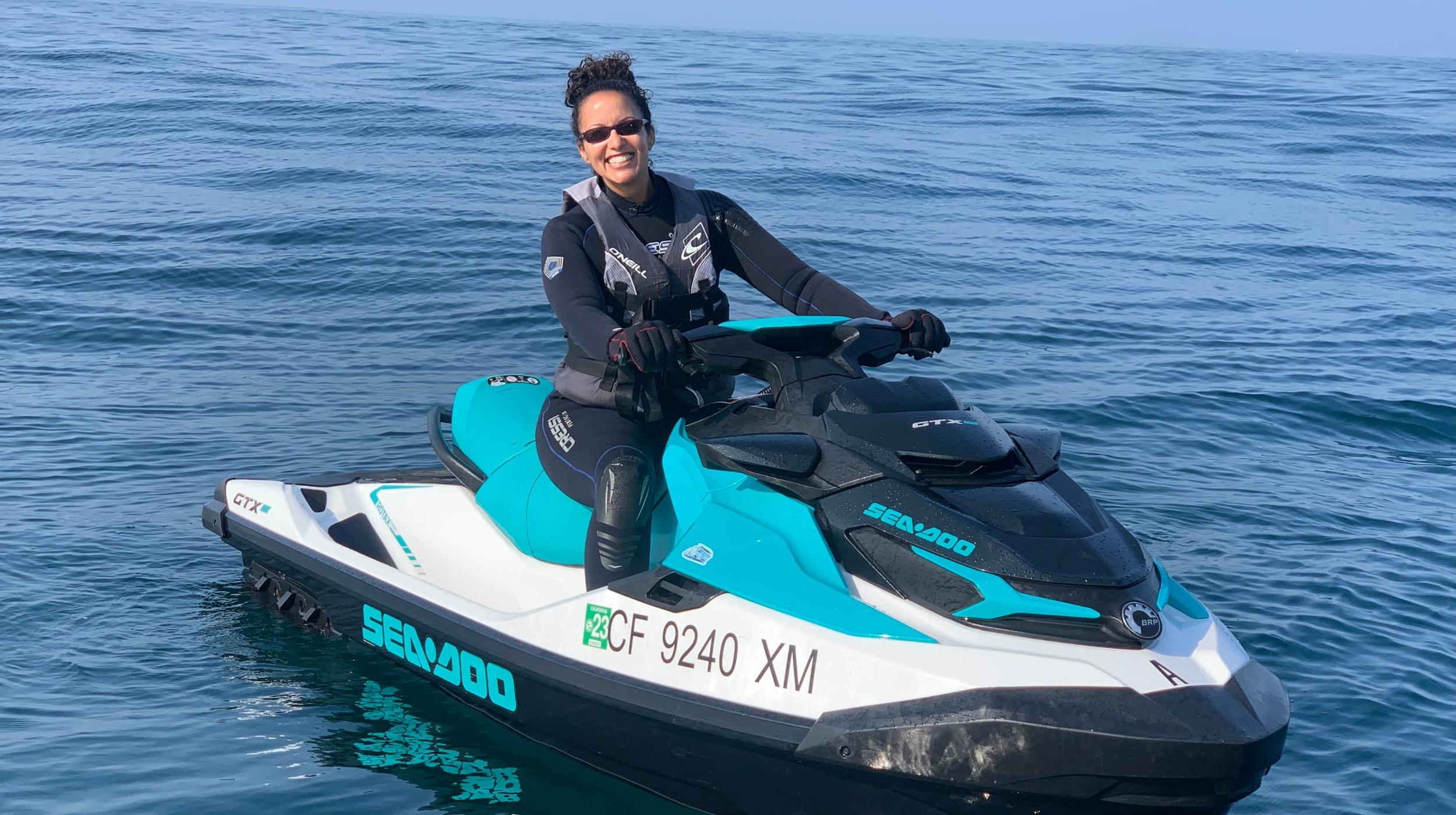
here are 5 tips for starting solo hiking
Do your research. If you’re going to be solo, make sure you plan and prepare for your trip. Do your research and plan for whatever hike, tours, sightseeing or adventures you’re going to do. Always let someone know where you’re going. This is important because if there’s an emergency, you want someone to know the general area of where you were planning to hike so help can find you. It’s not just a personal safety issue, but there are a variety of mishaps that can happen in nature so it’s important for someone to know where you are. Also, it’s important to know the trail conditions, what to expect, and the weather forecast on the day your trip is scheduled. Knowing these details will help you have a safe and enjoyable adventure!
Trust your intuition. This is really going to guide you in everything. It’s going to be different depending on your situation, but just trust it.
Use your awareness. Your awareness is powerful. Noticing what’s happening in your environment is what’s going to key you into things that you need to focus on more, and give you information about who’s in your space. It will also help you enjoy your time in nature when you are actively engaged with your environment!
Know that you are worth fighting for. That’s huge. That’s not something that I can teach you. That’s something that you have to find within yourself. And I enjoy having a part in people’s journey where they discover that piece of themselves because my role is to help them uncover what’s inside. We’re all worth fighting for; we just have to claim that fact!
You’re not helpless. People have shared with me that what holds them back is not necessarily the fear that something is going to happen, but that they will not know what to do if it does. Some people fear that without help or someone else with them, they will not survive an adverse situation. That could not be further from the truth! We are not helpless. Having the skills to problem solve whether the situation is a wilderness emergency, an accident or a personal safety issue, can give us the confidence we need to venture out on our own. Plus, we have so many tools and options available on our body to be able to protect ourselves, so that even if we face a worst case scenario, we have a choice in how to respond. We do not have to rely on anyone else or anything else to save us. There is power in realizing our own strength and knowing that we are worth fighting for.
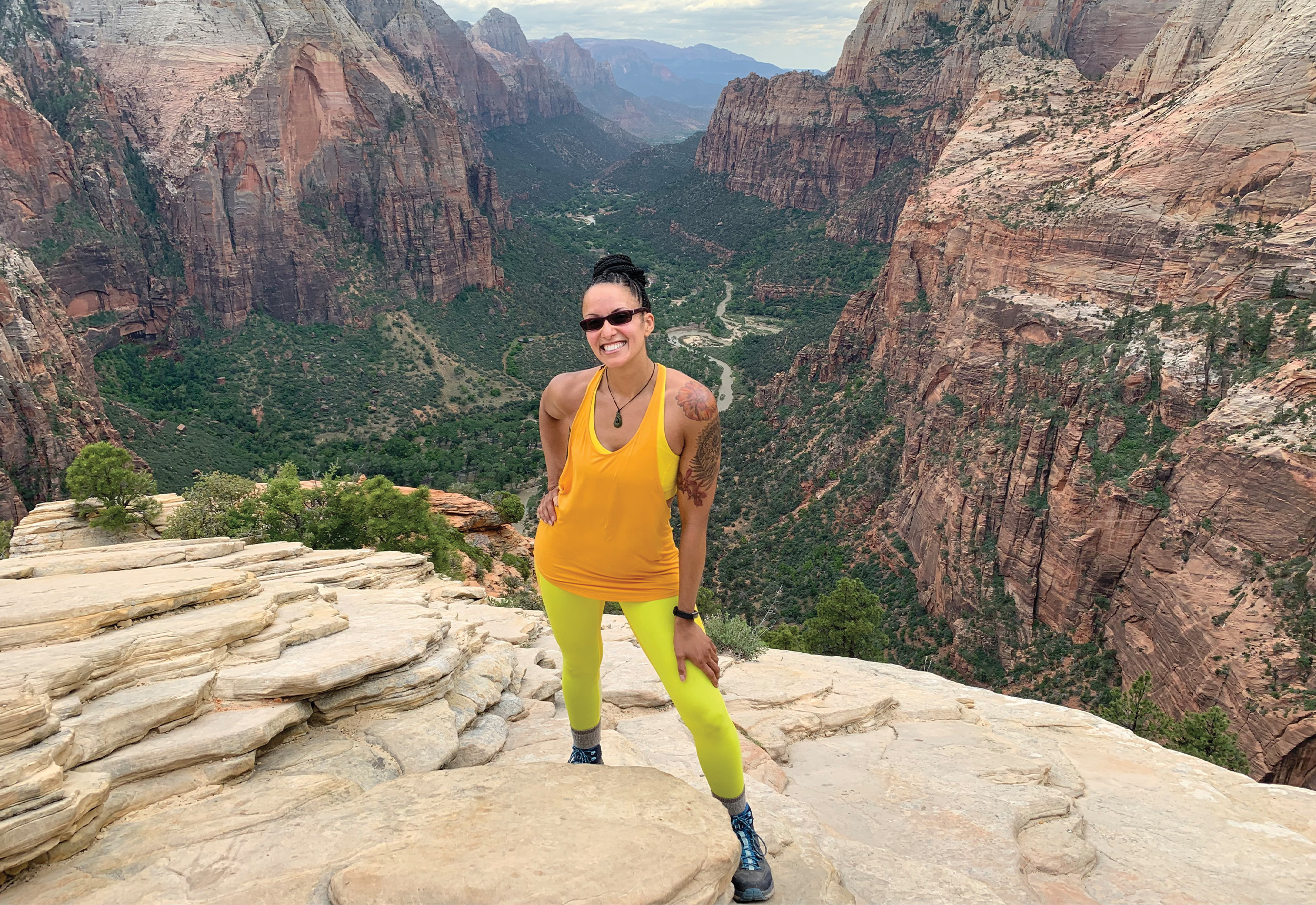
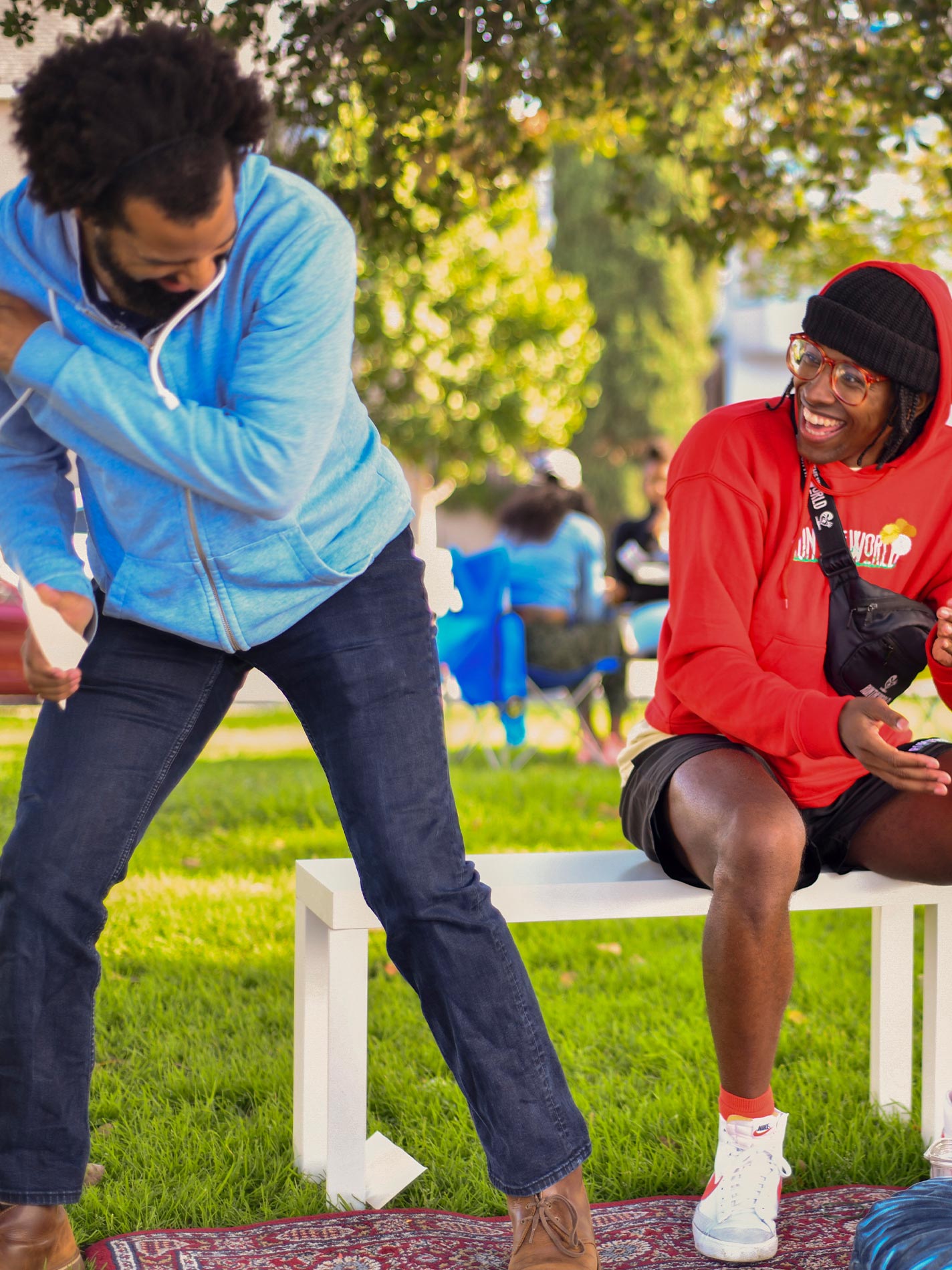
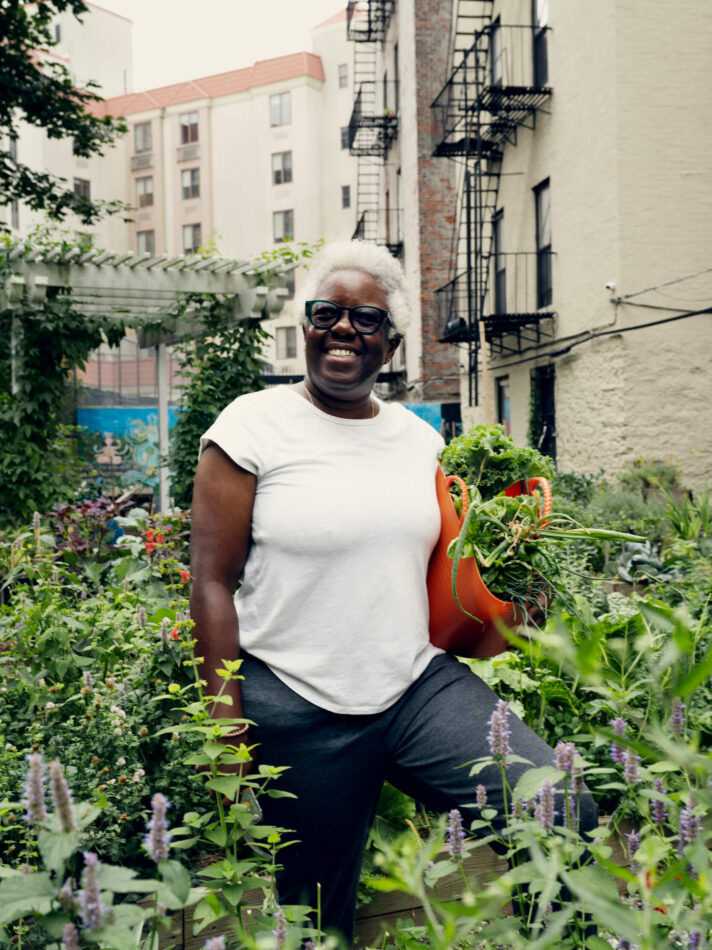
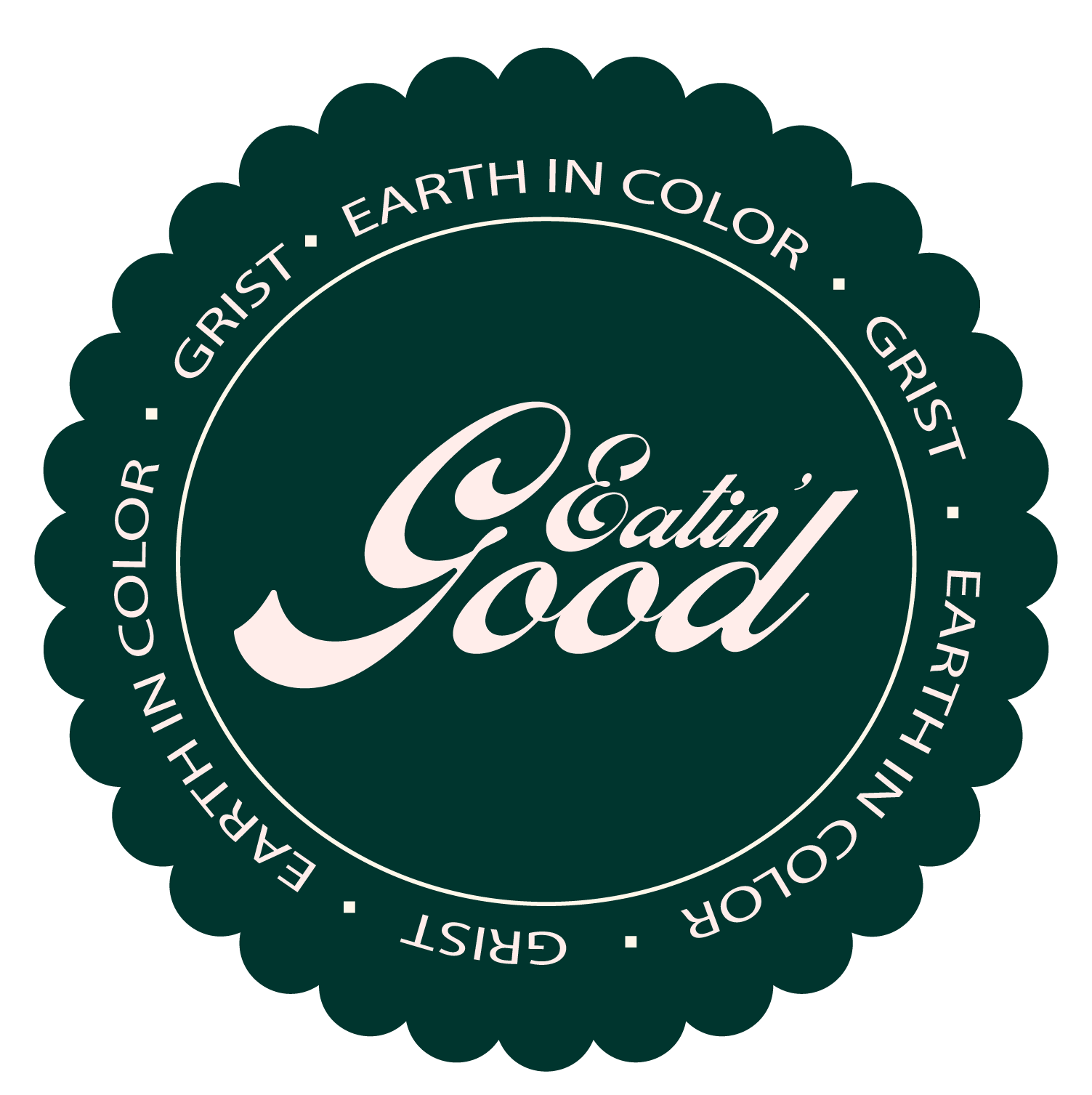
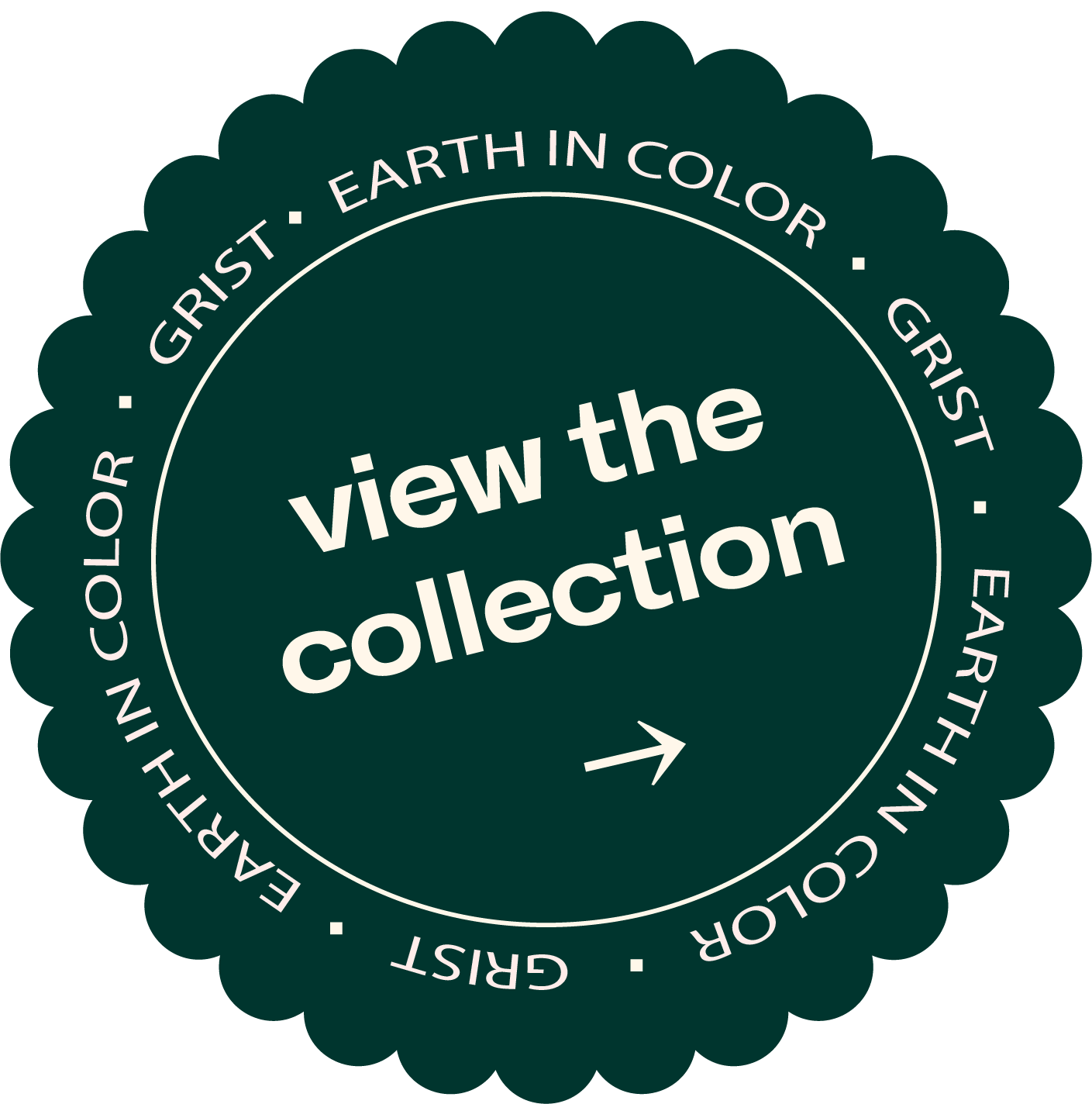
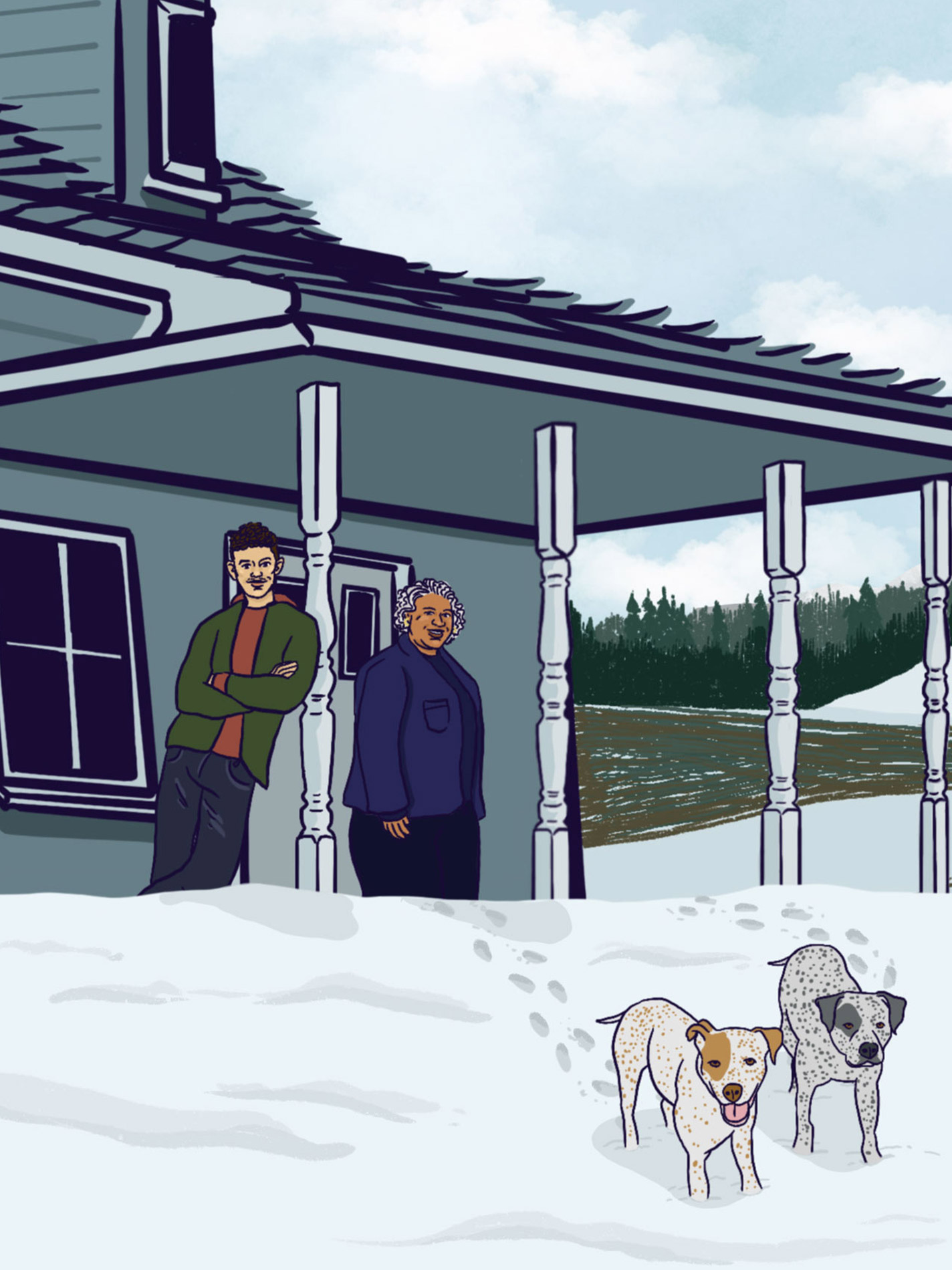
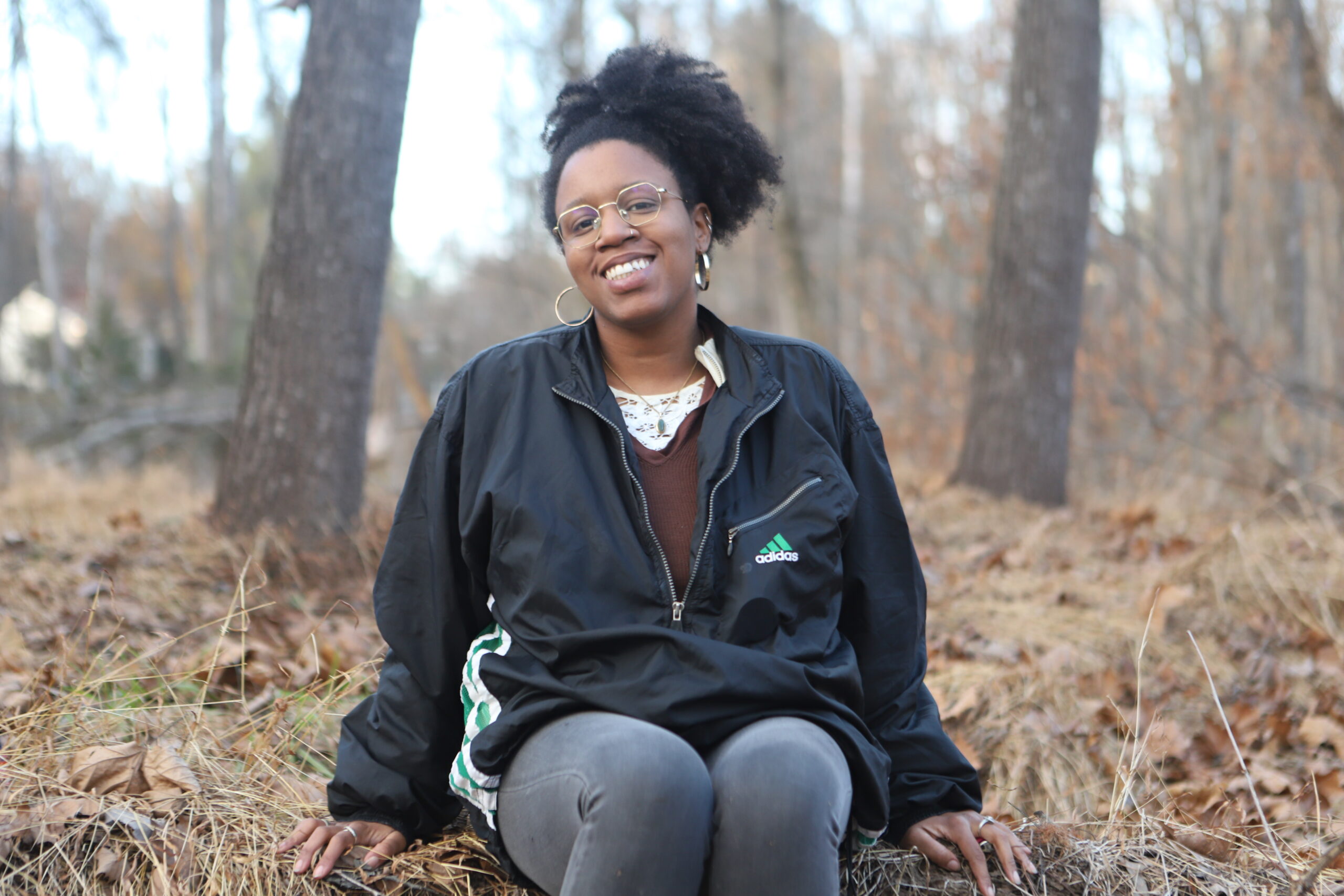

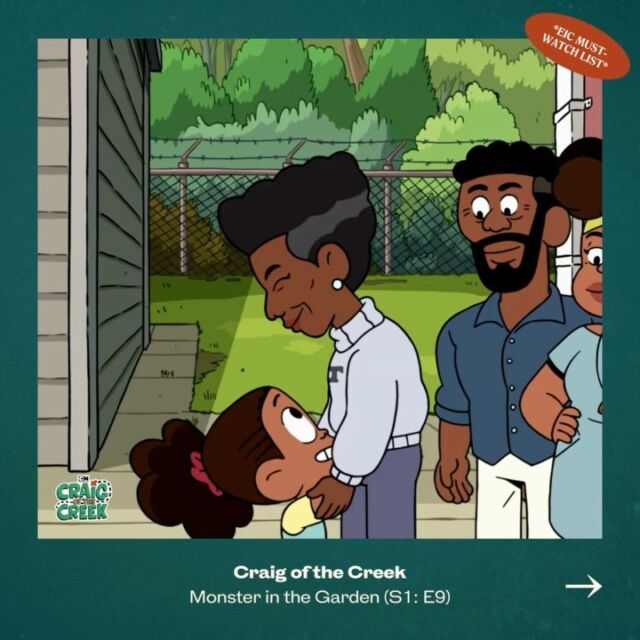
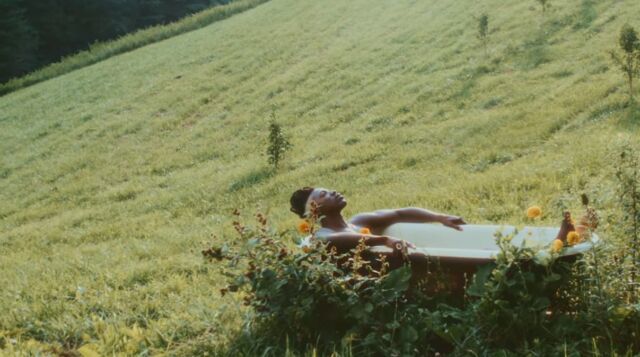
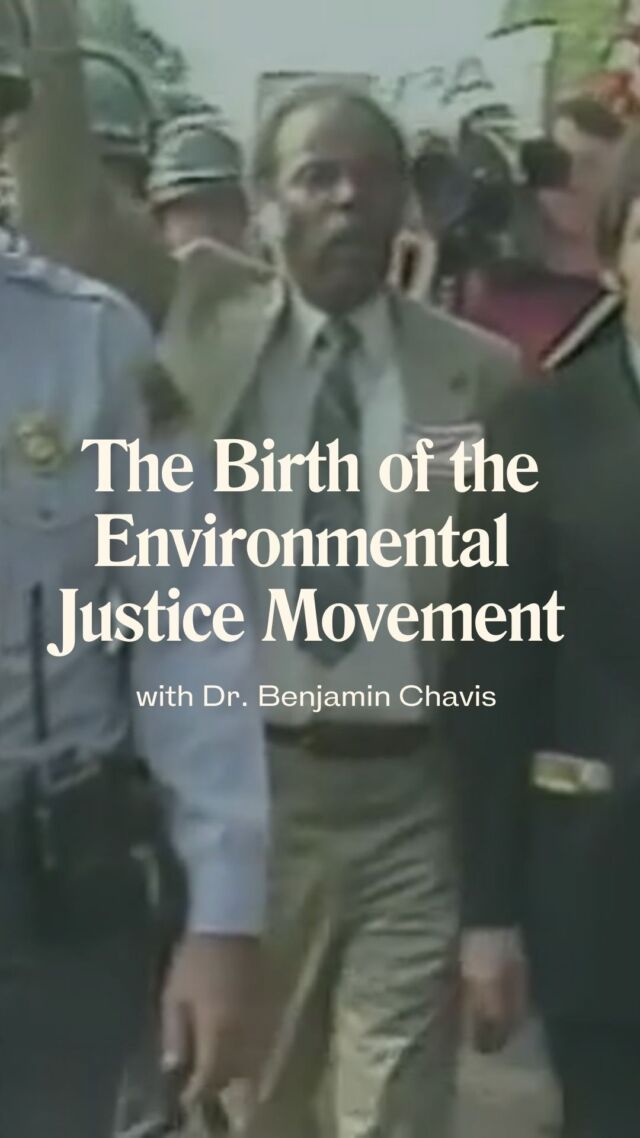
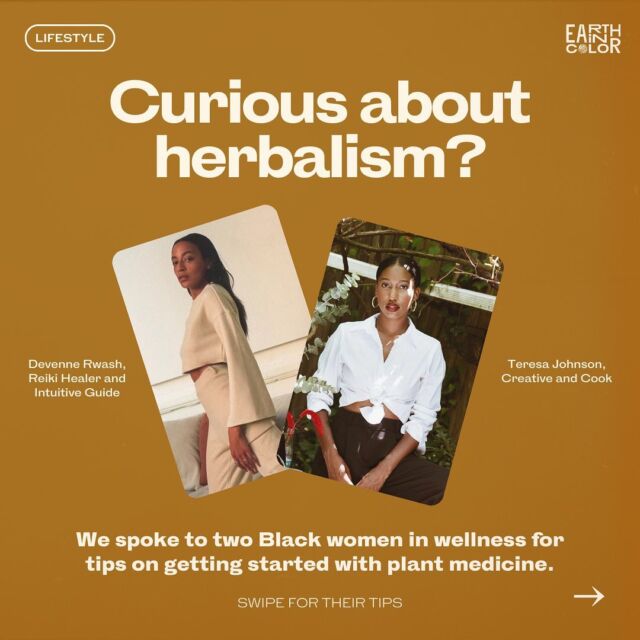
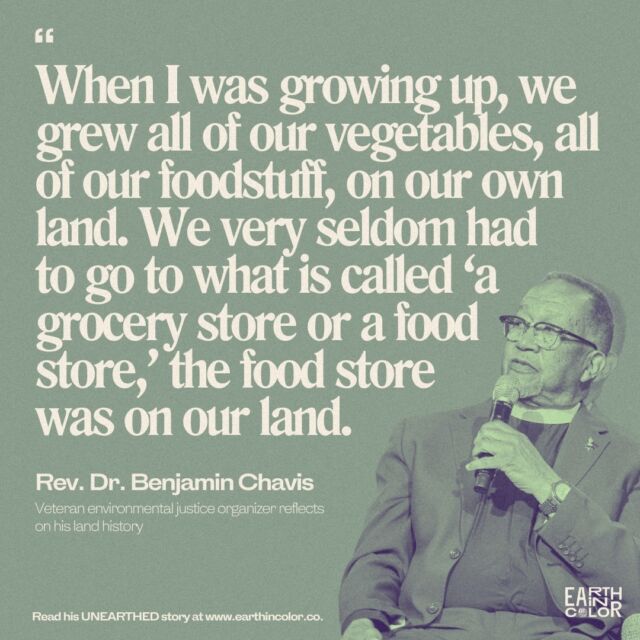
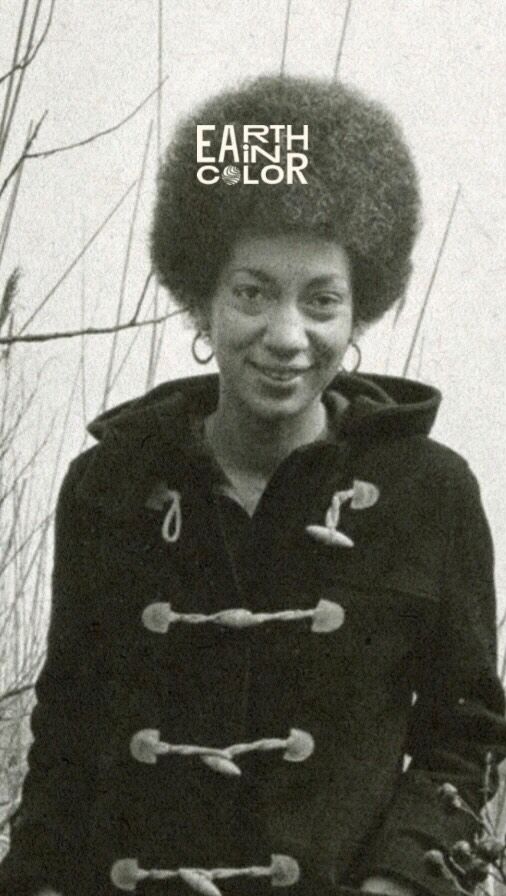
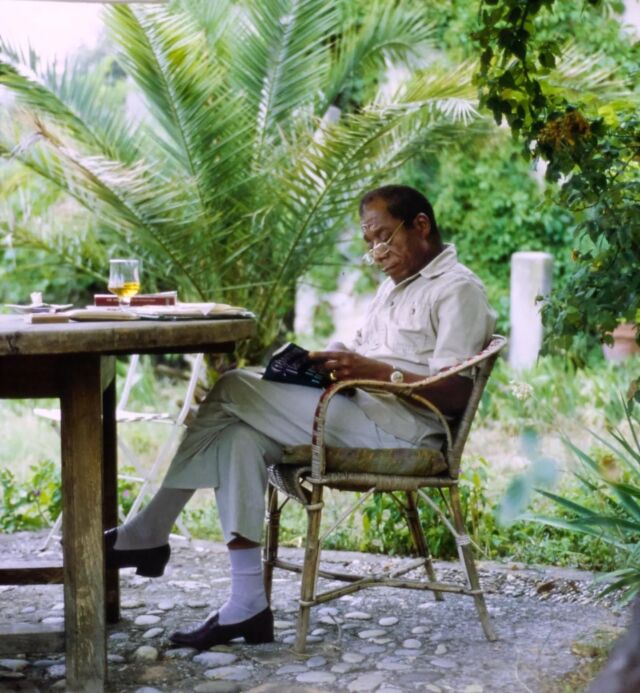
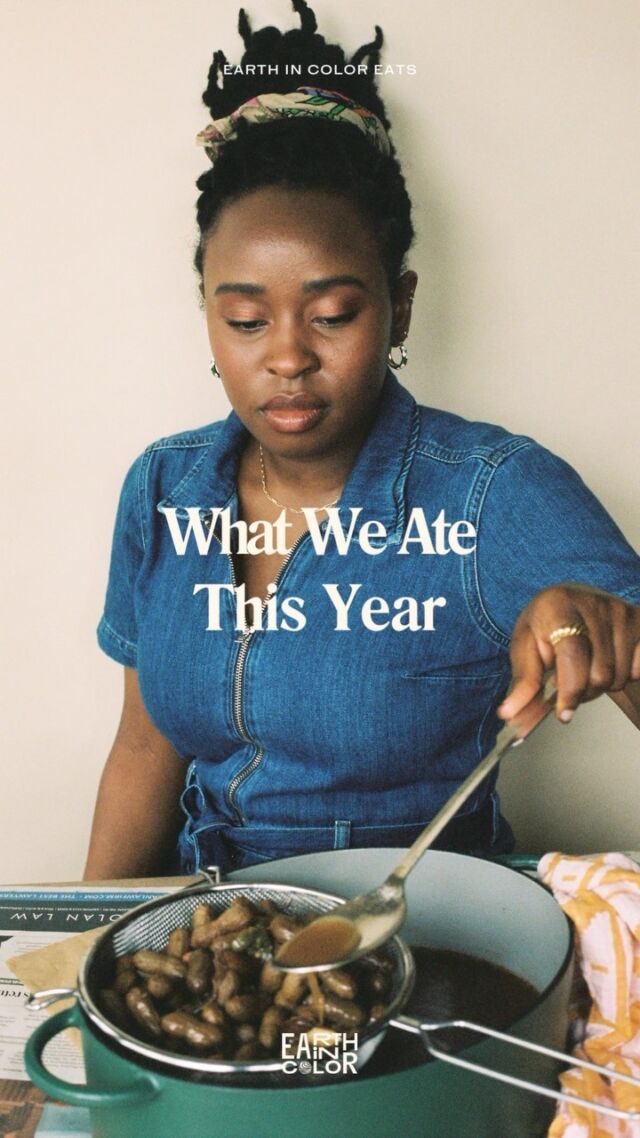
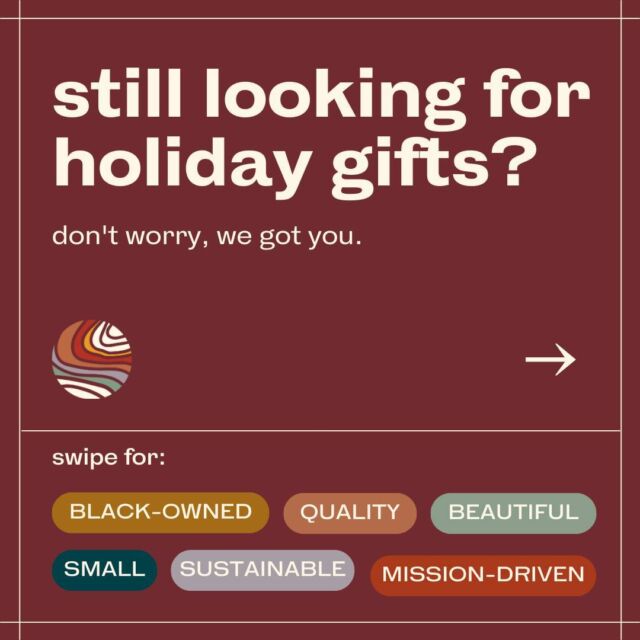
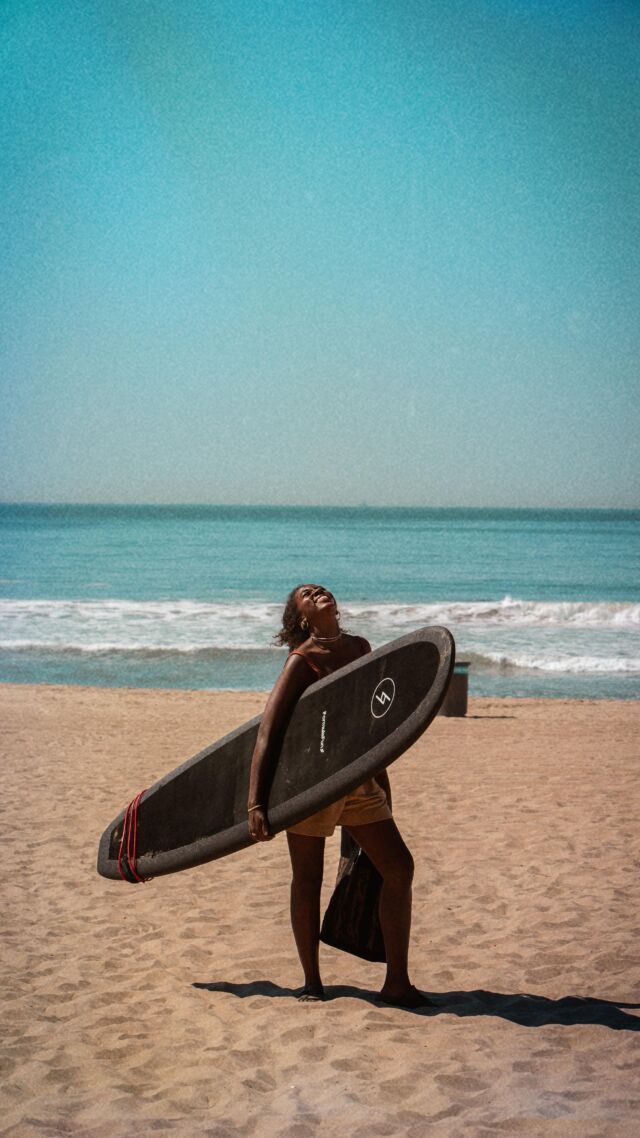
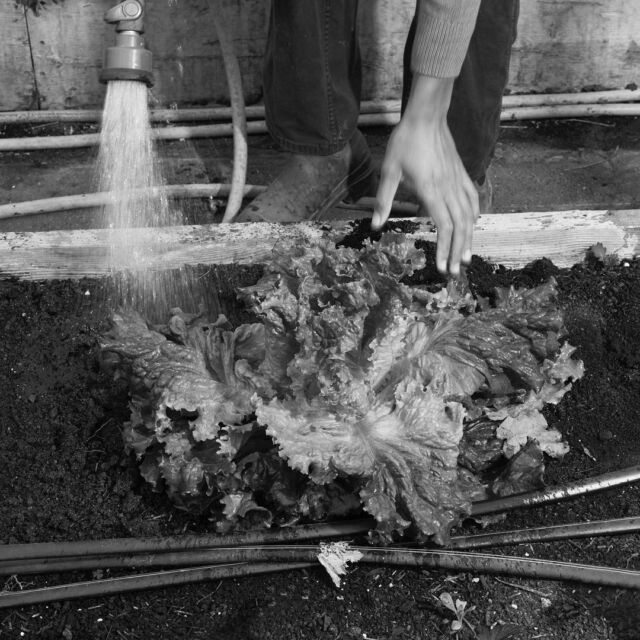
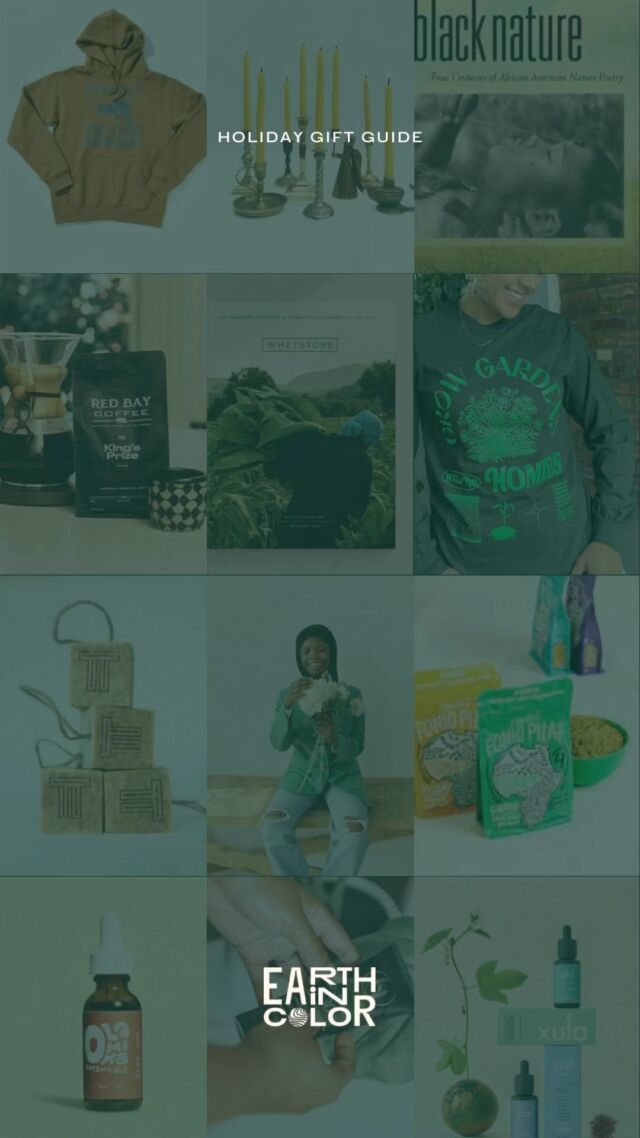

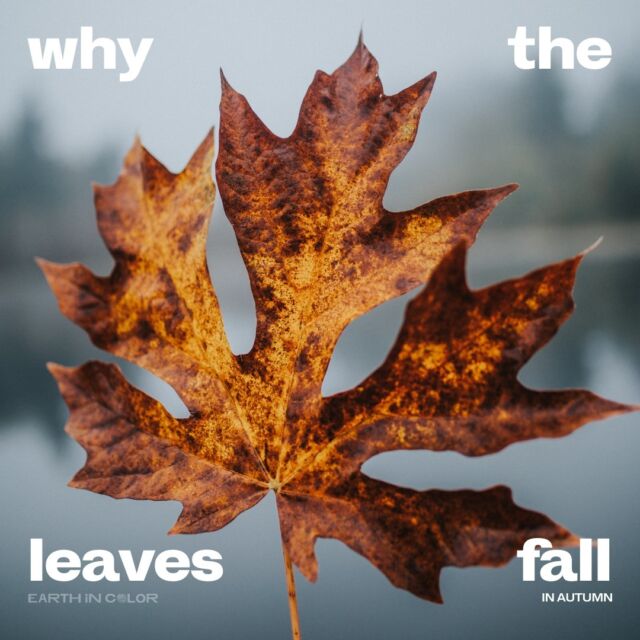
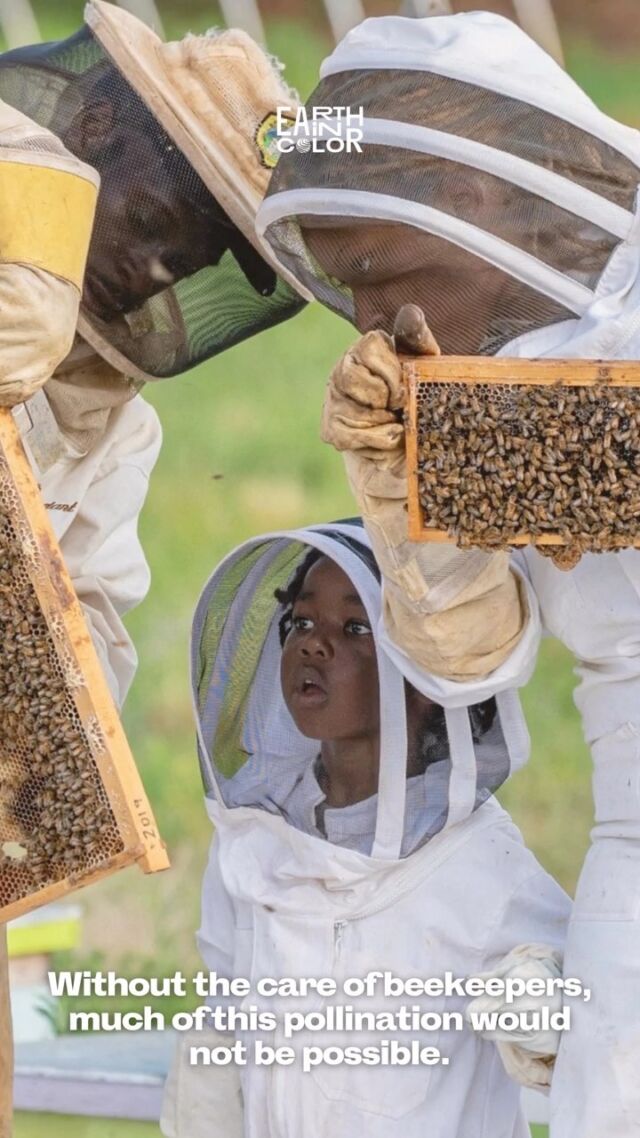
![Did you know you could be buying fake honey? 👀🍯
According to @detroithives co-founder Timothy Paule Jackson, “ninety percent of most honey that you get in big box stores is fake.” To make sure you’re getting the real stuff, he suggests checking out the nutrition label. Fake honey will have ingredients like “high fructose corn syrup, peach syrup, [and] it’ll have some type of sugar.” Avoid honey labeled as “pure” or “pasteurized,” and instead look for words like “raw” or “local.”
And with winter approaching, it’s the perfect time to stock up — not only is it full of vitamins and minerals, but real honey can also be used as a remedy for sore throats and coughs. Swipe to check out some of our favorite Black-owned bee farms and Black beekeepers selling the good stuff 🐝🍯](https://earthincolor.co/wp-content/uploads/sb-instagram-feed-images/314552686_126502226881255_7598404171432106028_nfull.jpg)
